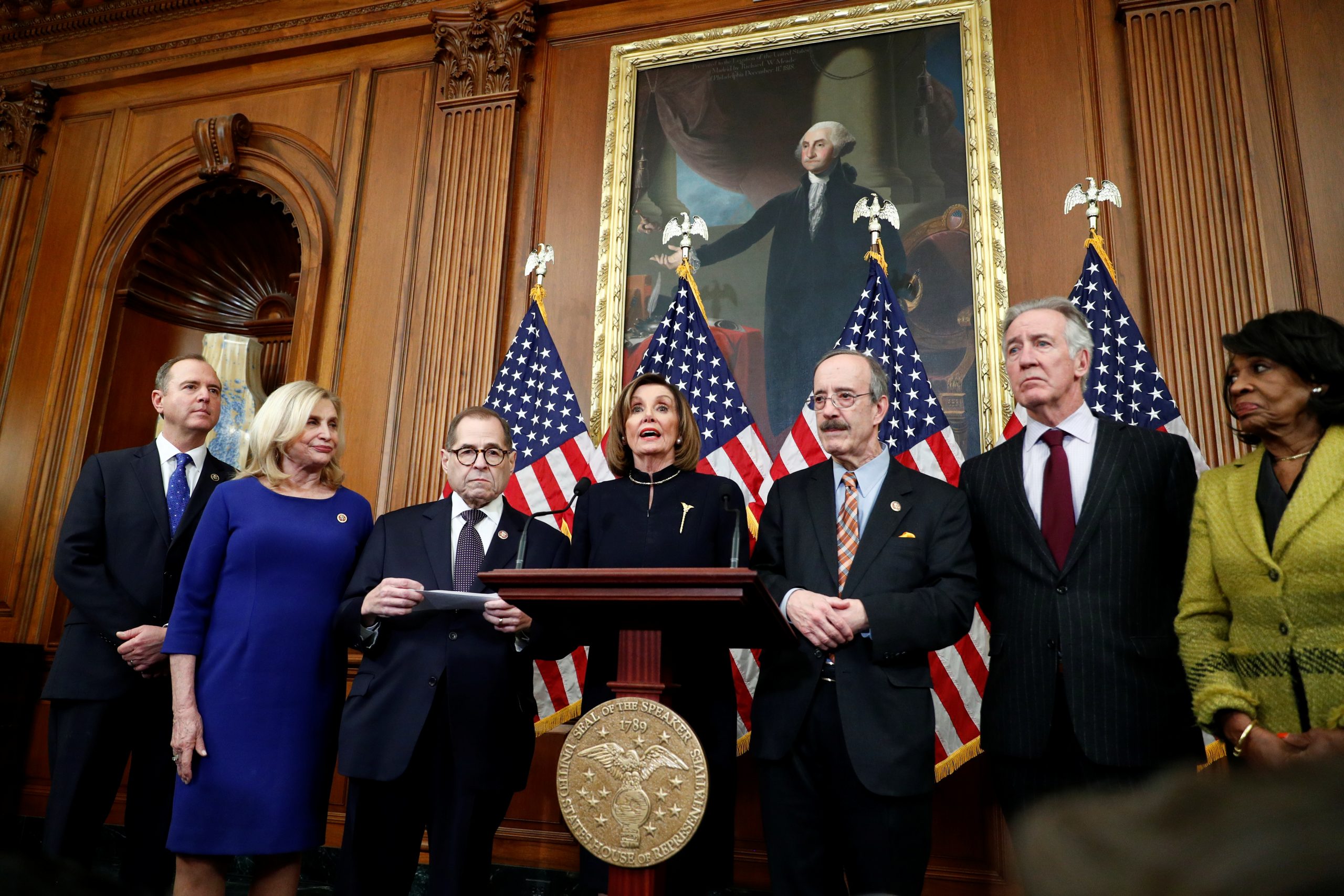The U.S. Senate is due to hold a trial to consider whether President Donald Trump should be removed from office, after the House of Representatives voted in December to impeach him for pressuring Ukraine to investigate former Vice President Joe Biden, a potential rival in the 2020 presidential election.
What happens next and why is Trump unlikely to be removed from office?
WHY IMPEACHMENT?
The founders of the United States feared presidents abusing their powers, so they included in the Constitution a process for removing one from office.
The president, under the Constitution, can be removed from office for “Treason, Bribery, or other high Crimes and Misdemeanors.”
High crimes and misdemeanors have historically encompassed corruption and abuses of the public trust, as opposed to indictable violations of criminal statutes.
Former President Gerald Ford, while in Congress, famously said: “An impeachable offense is whatever a majority of the House of Representatives considers it to be at a given moment in history.”
No president has ever been removed as a direct result of impeachment. One, Richard Nixon, resigned before he could be removed. Two, Andrew Johnson and Bill Clinton, were impeached by the House but not convicted by the Senate.
HOW DOES IT WORK?
Impeachment begins in the House, the lower chamber, which debates and votes on whether to bring charges against the president via approval of an impeachment resolution, or “articles of impeachment,” by a simple majority of the body’s members.
The Constitution gives House leaders wide latitude in deciding how to conduct impeachment proceedings, legal experts said.
The House Intelligence Committee investigated whether Trump abused his power to pressure Ukraine to open probes that would benefit him politically, holding weeks of closed-door testimony and televised hearings before issuing a formal evidence report.
The House Judiciary Committee used the report to draft formal charges and voted 23-17 along party lines to approve charges against Trump of abuse of power and obstructing House Democrats’ attempts to investigate him for it.
The Democratic-controlled House approved both of those charges on Dec. 18 in votes that fell almost completely along party lines.
That set up a trial in the Republican-controlled Senate.
WHAT WOULD A SENATE TRIAL LOOK LIKE?
House members act as the prosecutors; the senators as jurors; the chief justice of the United States presides.
Historically, the president has been allowed to have defense lawyers call witnesses and request documents.
Beyond that, parameters of the trial are uncertain at this point. Senate Democratic Leader Chuck Schumer is pressing for four Trump aides to testify, including Mick Mulvaney, the acting White House chief of staff, and John Bolton, Trump’s former national security adviser.
Senate Republican Leader Mitch McConnell has thrown cold water on that idea, saying House Democrats should have secured the testimony of Bolton and Mulvaney during their investigation.
House Speaker Nancy Pelosi has delayed sending over the impeachment articles to the Senate in a bid to pressure McConnell. The two sides appear to have made little progress toward an agreement.
CAN THE SENATE REFUSE TO HOLD A TRIAL?
There is debate about whether the Constitution requires a Senate trial. But Senate rules in effect require a trial, and McConnell has publicly stated that he will allow one to proceed.
Republicans could seek to amend those rules, but such a moveis politically risky and considered unlikely, legal experts said.
WHAT’S THE PARTY BREAKDOWN IN CONGRESS?
The House comprises 431 members at present. Only three of the chamber’s 233 Democrats voted against one or both articles of impeachment; one voted “present” and another did not vote. Among Republicans, 195 voted against both articles and two did not vote. Independent Justin Amash, a former Republican, voted for both articles.
In 1998, when Republicans had a House majority, the chamber also voted largely along party lines to impeach Clinton, a Democrat.
The Senate now has 53 Republicans, 45 Democrats and two independents who usually vote with the Democrats. Conviction and removal of a president would require a two-thirds majority.
That is highly unlikely in this case. No Senate Republicans have indicated they may vote to convict the leader of their party. Should all 100 senators vote, at least 20 Republicans and all the Democrats and independents would have to vote against him.
WHO BECOMES PRESIDENT IF TRUMP IS REMOVED?
In the unlikely event the Senate convicts Trump, Vice President Mike Pence would become president for the remainder of Trump’s term, which ends on Jan. 20, 2021.
(Reporting by Jan Wolfe and Andy Sullivan; Editing by Ross Colvin and Grant McCool)

























 Continue with Google
Continue with Google